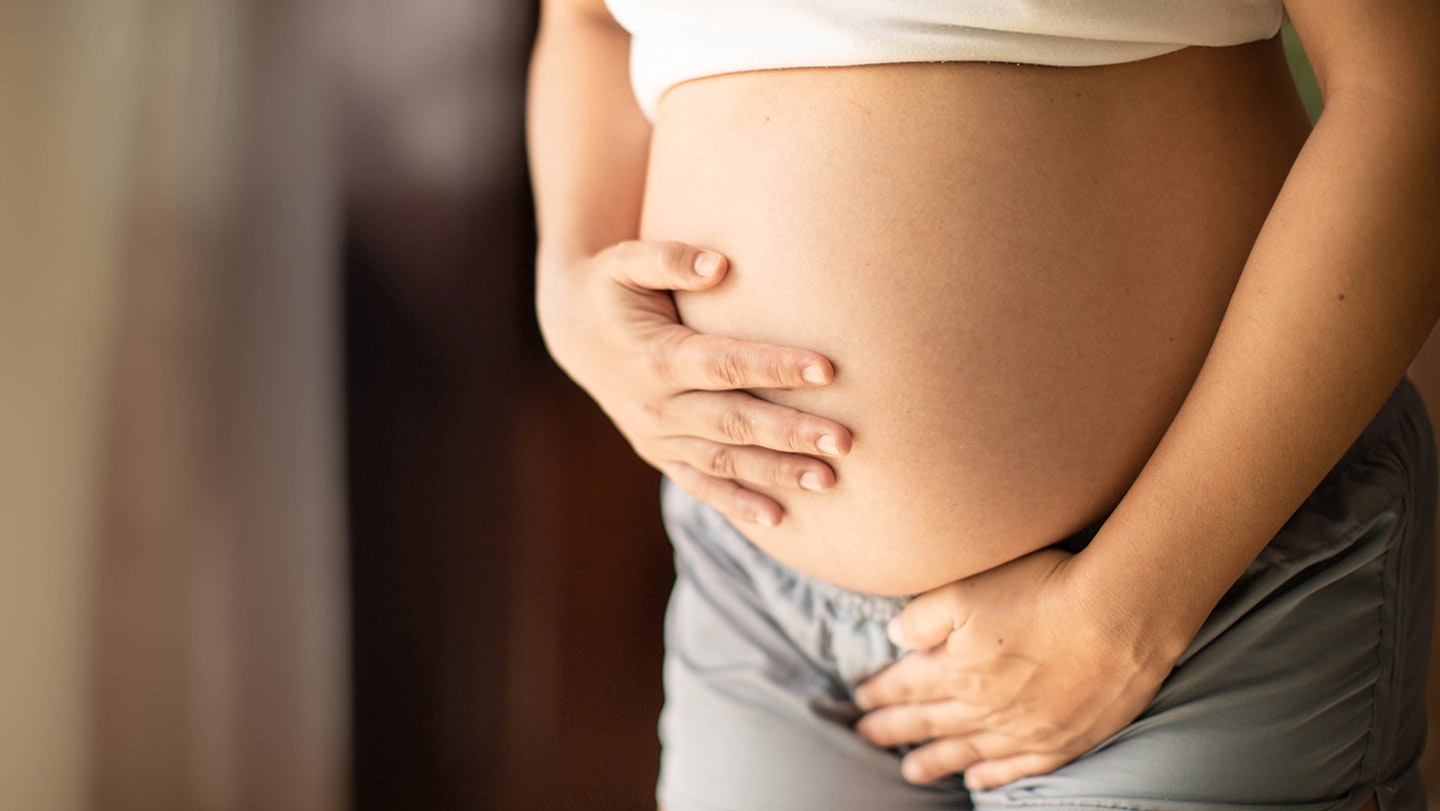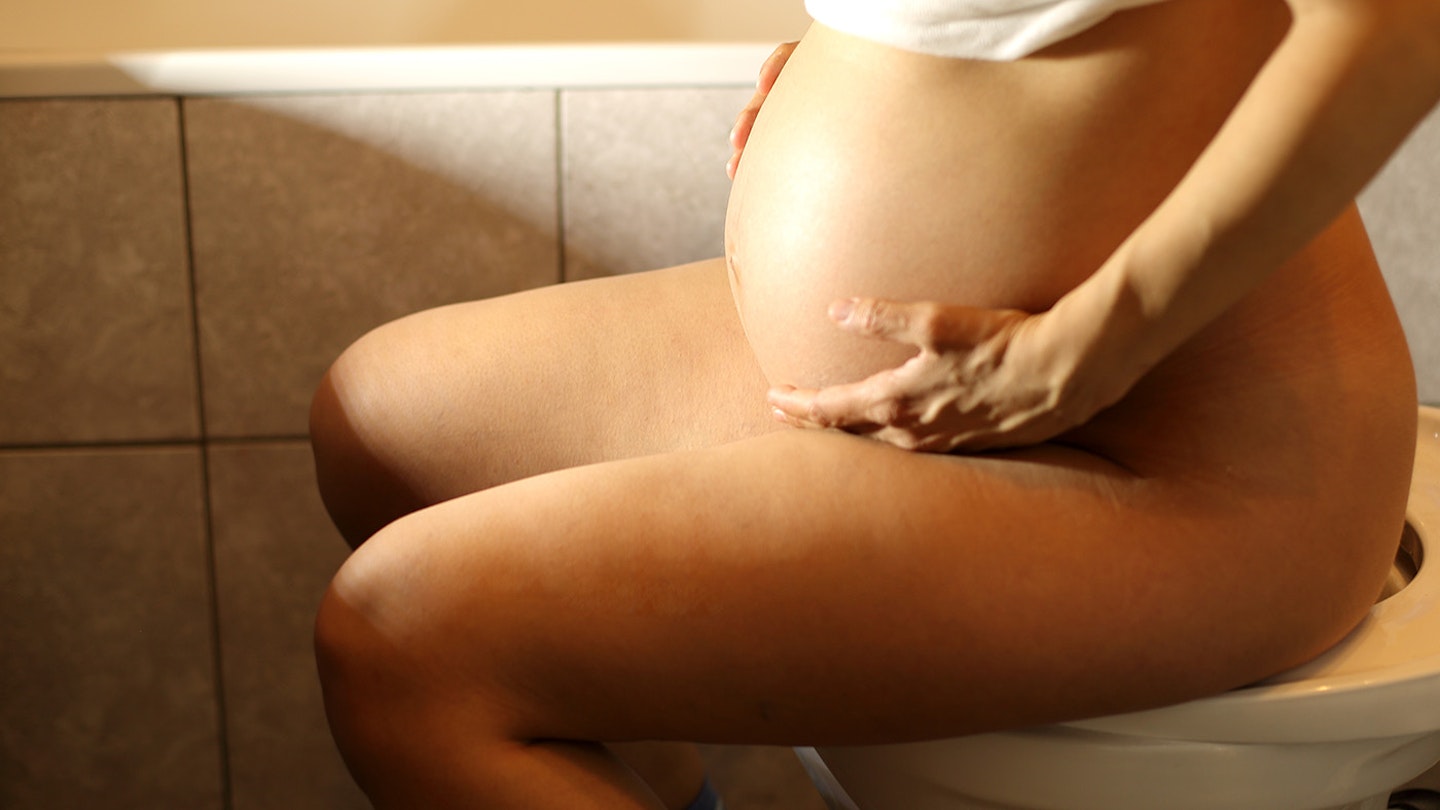Pregnancy constipation is just one of the glamorous side effects during those nine months of your body changing.
Irregular bowel movements and sluggish digestion are uncomfortable and a nuisance, but it’s perfectly common in pregnancy, especially in the third trimester. The good thing is you can get things, er, moving again.
What exactly is constipation in pregnancy?
Constipation is a frustrating, but aching problem when you just can’t poo. "This of course means different things to different people," says Mervi Jokinen from The Royal College of Midwives. "If you normally only go to the toilet two to three times a week, you probably wouldn’t feel constipated until you hadn’t been for a week or two. However, if you go every day and haven’t been for four days, then this could be a sign of constipation."
Read more: Your guide to chickenpox in pregnancy
Why am I constipated?
Around 40 per cent of women experience constipation at some point during their pregnancy. An increase in the hormone progesterone is released to loosen the ligaments and muscles in your body. This makes it easier for your baby to be delivered.
"These hormones also affect the muscles around your intestines, causing digestion to become sluggish," says Mervi. This tends to happen around the second to third month of pregnancy, though it can get worse as the pregnancy progresses.
Some iron supplements, which are prescribed to treat anaemia in pregnancy, can also cause constipation.
If you've previously suffered from IBS that causes constipation, you may find that your pregnancy impacts your IBSsymptoms in different ways.
What are the symptoms of constipation in pregnancy?
As well as not having a bowel movement, you could also experience bloating and abdominal pain, and any poo you do produce could be hard and dry.
"If you strain too hard, you may develop haemorrhoids, which can be itchy and bleed, leaving bright red blood on the tissue or in the bowl," says Mervi.

Constipation in pregnancy remedies
• Diet is one of the best ways to tackle constipation. "Include plenty of fibre-rich foods such as wholegrain cereals, oats, vegetables and dried fruit such as apricots and prunes," says Mervi. "Beans and pulses are also good sources. However, make sure you also up your fluid intake or it could be a painful process."
• You should aim to drink around 1.5 litres of fluid be it water, juice or herbal tea such as ginger tea during pregnancy. This helps to keep your bowels soft and moving through your digestive tract.
• Gentle exercise, including walking or swimming, is also good for constipation as it increases circulation to stimulate your digestive system.
• Rather than your usual three meals a day, consider splitting them into five or six smaller ones. This gives your stomach time to digest the food without having to work overtime while bigger meals make it tough for your digestive system to process what you've eaten.
• Although you should consult your midwife or doctor beforehand, some women have found acupuncture during pregnancy to help with constipation.
When to see your GP
Be sure to contact your GP if you haven’t been to the loo for a long time and are in pain. "Your GP may prescribe laxatives to help encourage a bowel movement," says Mervi.
As not all stool-softeners and laxatives have been tested on pregnant women, make sure you mention to your pharmacist that you're pregnant. "If you can only get to a pharmacy, make sure you tell the chemist that you’re pregnant so they can give you a laxative that’s safe in pregnancy."
If you’ve developed piles, you can get creams and ointments to treat the discomfort, but see your doctor if you get persistent bleeding.
